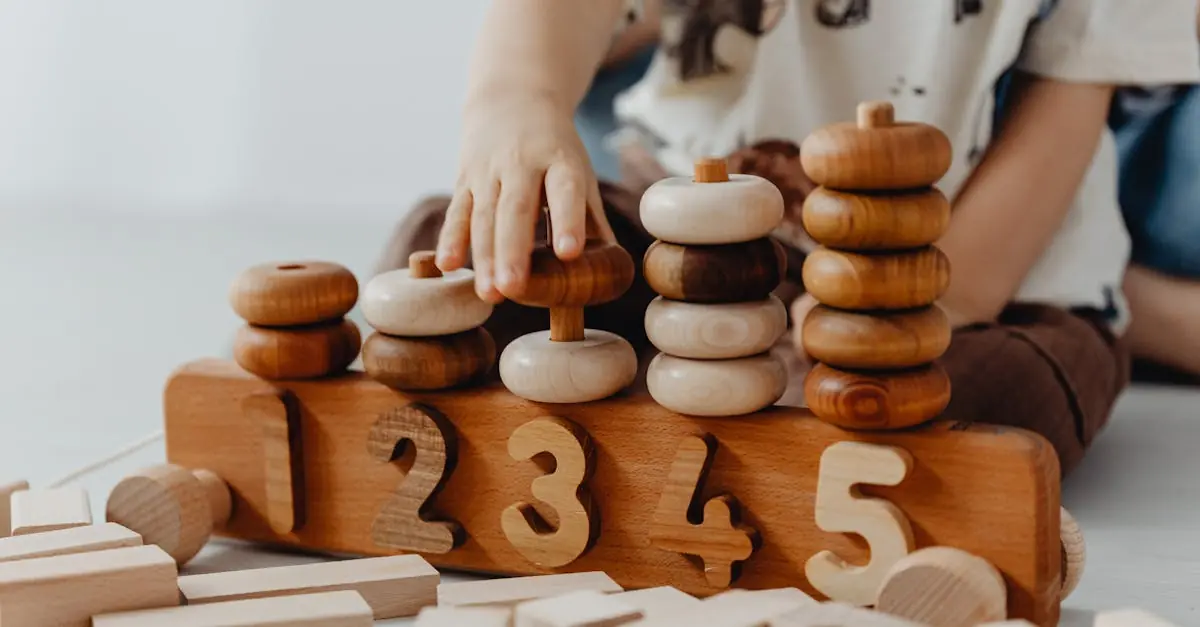Table of Contents
ToggleNavigating the world of co-parenting can feel like stepping into a reality show—full of drama, unexpected twists, and some seriously cringe-worthy moments. When two parents can’t see eye to eye, it’s easy to turn to humor to lighten the load. Enter toxic co-parenting quotes, the perfect blend of wit and wisdom that captures the chaotic essence of shared parenting.
These quotes not only provide a chuckle but also serve as a reminder that many have walked this rocky path before. Whether it’s dealing with passive-aggressive texts or the infamous “We need to talk” conversations, these words resonate with anyone who’s ever tried to co-parent with a less-than-ideal partner. Get ready to embrace the chaos and find solace in the shared experiences of others who’ve turned their co-parenting struggles into relatable humor.
Understanding Toxic Co-Parenting
Toxic co-parenting complicates the dynamics between separated parents. Conflicts can lead to emotional distress, affecting both parents and children.
Defining Toxic Co-Parenting
Toxic co-parenting involves negative interactions that undermine the effectiveness of shared parenting. Conflicts may include constant criticism, manipulation, or lack of support. Such behaviors prevent healthy communication and mutual respect. Parents creating a hostile environment may unintentionally harm their children’s emotional well-being. Recognizing toxic patterns is essential for improvement. Understanding this concept helps parents identify unhealthy dynamics and seek change.
Signs of Toxic Co-Parenting
Signs of toxic co-parenting often manifest through communication styles and parenting behaviors. Frequent arguments about parenting decisions indicate ongoing conflict. Parents may disregard one another’s boundaries, leading to further tension. Children may also feel caught in the middle, expressing confusion or distress. Lack of cooperation regarding schedules and important events signals deeper issues. Emotional manipulation and using children as pawns highlight unhealthy control dynamics. Identifying these signs allows parents to address problems before they escalate.
Impact of Toxic Co-Parenting Quotes
Toxic co-parenting quotes shed light on significant issues affecting both children and parents. Recognizing these impacts promotes a healthier environment for everyone involved.
Emotional Effects on Children
Children often feel the emotional strain of toxic co-parenting. Constant tension between parents leads to anxiety and insecurity. Indirectly, kids face challenges in forming healthy relationships as they model their behavior on what they observe. Frequent arguments and negative communication create confusion, causing feelings of guilt or loyalty conflicts. Children might also struggle with self-esteem, internalizing their parents’ disputes. As they attempt to navigate this chaotic dynamic, many experience difficulties in expressing their emotions or trusting others.
Effects on the Co-Parenting Relationship
Toxic quotes reflect deep-rooted issues within the co-parenting relationship. Hostility and negativity foster resentment, making effective communication nearly impossible. Parents may find themselves caught in a cycle of blame and criticism, ultimately driving a wedge between them. Frequent misunderstandings exacerbate conflicts, leading to prolonged disputes. Trust diminishes when partners engage in manipulation or emotional games. The overall atmosphere transforms into a battleground, undermining basic cooperation and decision-making. Recognizing these detrimental effects encourages parents to seek healthier strategies and focus on their children’s well-being.
Examples of Toxic Co-Parenting Quotes
Toxic co-parenting quotes capture the challenges that arise in shared parenting. They reflect the struggles faced by parents in these difficult situations.
Manipulative Quotes
“You’re just like your mother” highlights attempts to manipulate children’s perceptions. “If you really cared, you’d let me have them more” expresses guilt as a tactic. Such phrases foster division and encourage kids to take sides. “You only want them for the money” showcases how financial motives can be weaponized. Familiarity with these quotes helps identify manipulation within co-parenting scenarios.
Blaming Quotes
“You’re the reason our child is struggling” blames the other parent for children’s issues. “If you didn’t always show up late, they’d be happier” shifts responsibility onto the co-parent. Statements like “You make this co-parenting thing impossible” create a barrier to effective communication. These words indicate patterns of blame that undermine cooperation. Understanding their implications aids parents in fostering healthier dialogues.
Coping Strategies for Dealing with Toxic Co-Parenting
Effective coping strategies can significantly improve the co-parenting experience, particularly when navigating toxic dynamics. Implementing clear communication and establishing firm boundaries fosters a healthier environment for both parents and children.
Communication Techniques
Active listening plays a critical role in effective communication. Parents should focus on understanding each other’s perspectives rather than winning arguments. Using “I” statements can also help express feelings without sounding accusatory. Clarifying messages ensures both parties remain on the same page, reducing misunderstandings. Documenting conversations can establish a record of agreements and commitments, making it easier to reference later. Staying calm and addressing issues directly prevents escalation and promotes problem-solving. Moreover, remaining respectful, even during disagreements, nurtures a civil atmosphere.
Setting Boundaries
Establishing clear boundaries helps define acceptable behaviors and creates a healthier co-parenting framework. Each parent must communicate their limits and expectations openly. Agreeing on parenting schedules, communication methods, and rules for interactions reduces potential conflict. Respecting one another’s personal space and time limits enhances mutual respect. Regularly revisiting and adjusting boundaries based on evolving family needs keeps relationships functional. Additionally, using a mediator or counselor can assist in solidifying boundaries, offering support when tensions arise. Prioritizing boundaries leads to a more balanced co-parenting dynamic that prioritizes children’s well-being.
Toxic co-parenting can create a challenging environment that negatively impacts everyone involved. Recognizing the signs of toxic behaviors is the first step toward fostering healthier communication and cooperation. By addressing manipulation and blame, parents can work towards a more supportive atmosphere for their children.
Utilizing humor through toxic co-parenting quotes can provide relief and a sense of community among those facing similar struggles. Embracing effective coping strategies and prioritizing boundaries will pave the way for a more positive co-parenting experience. Ultimately, focusing on children’s well-being should remain the central goal, ensuring they thrive despite the complexities of shared parenting.




